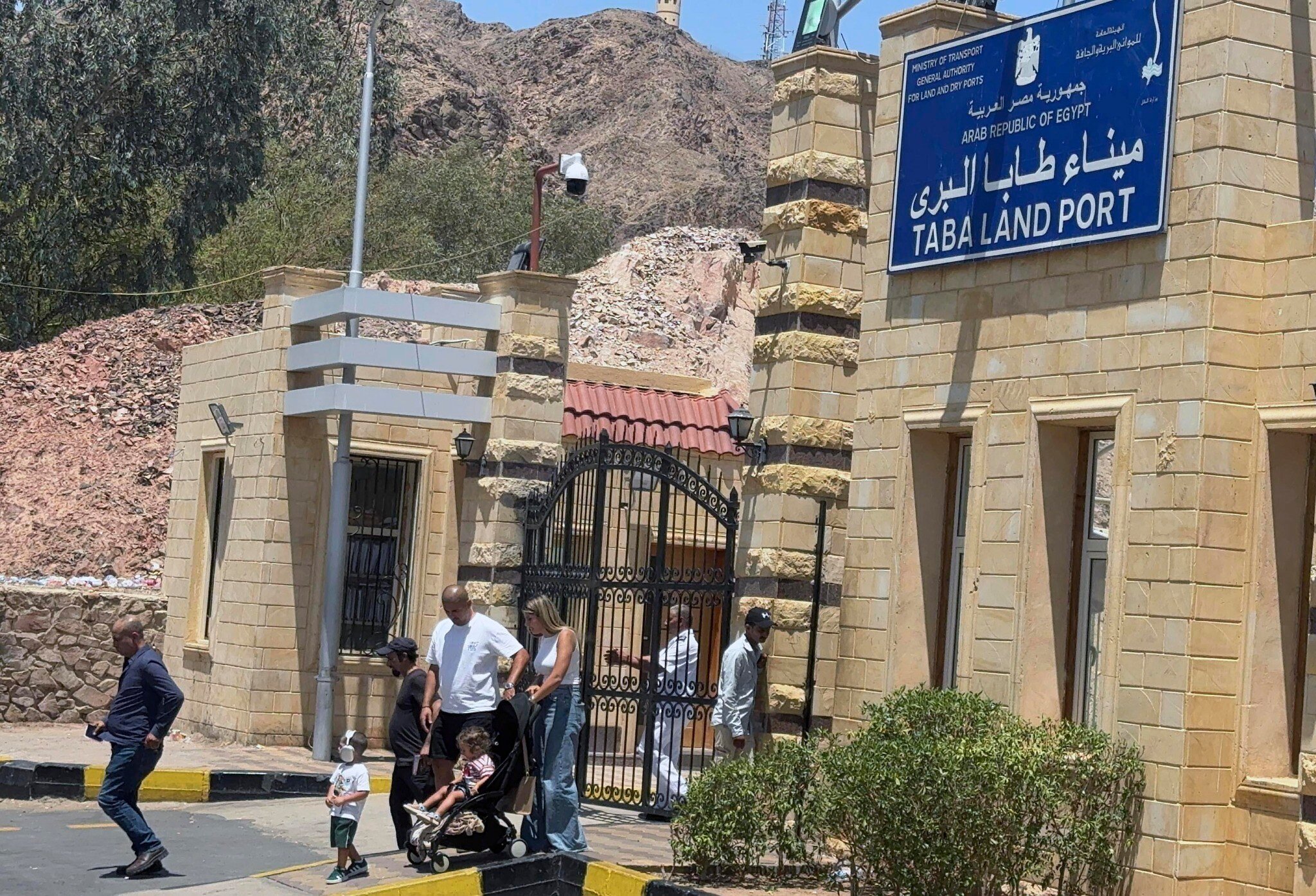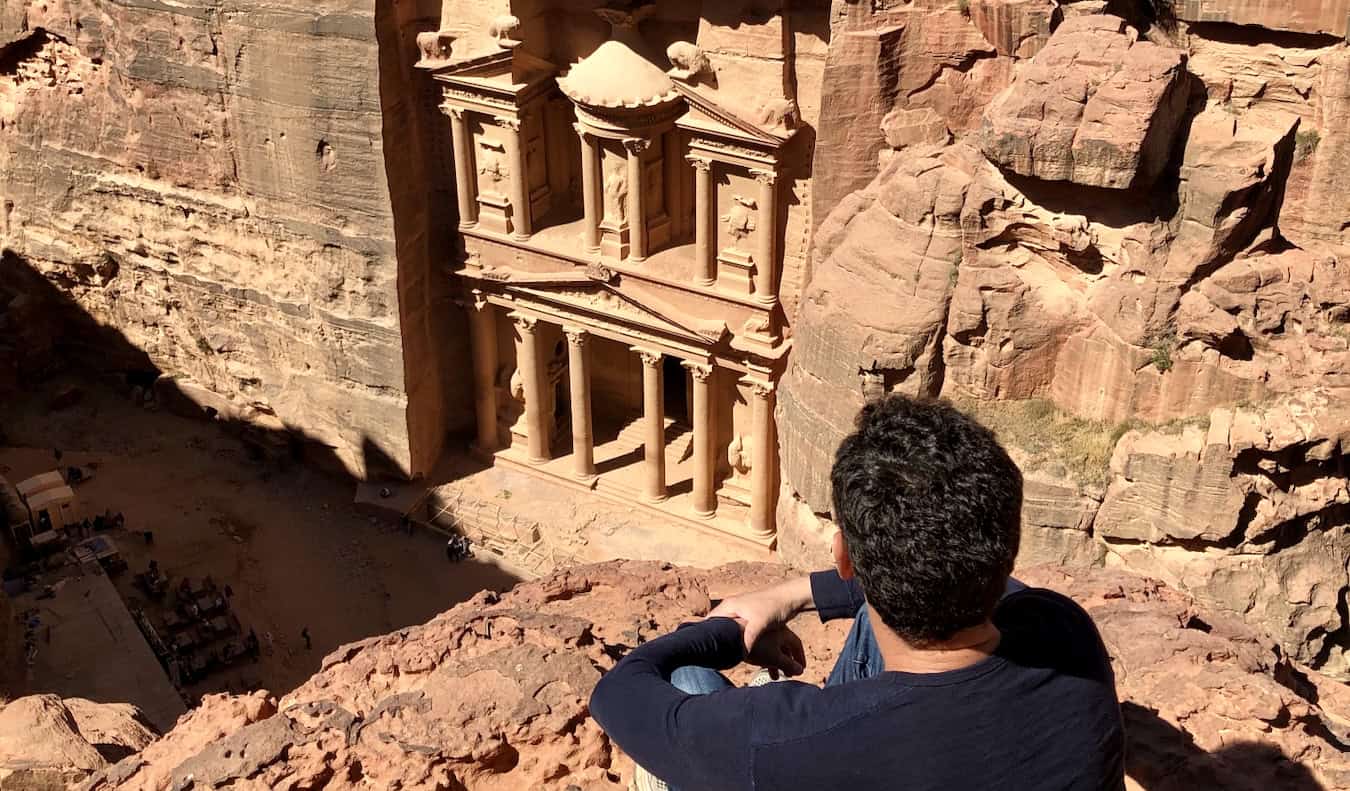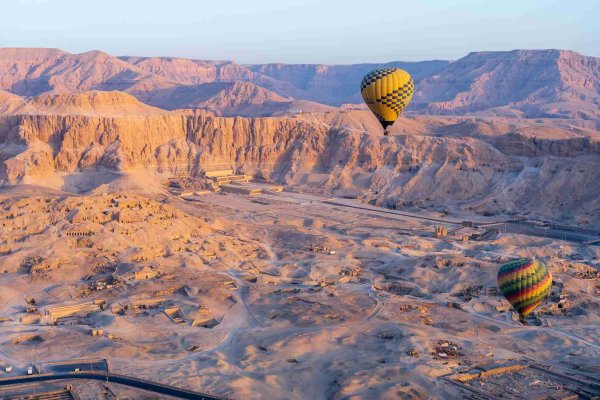Is It Safe to Travel to Egypt, Jordan, and Israel in 2025?

Overview of Egypt, Jordan, and Israel in 2025
Current Travel Situation
In 2025, travelling to Egypt, Jordan, and Israel presents a vibrant yet cautiously navigable experience for visitors. Each country showcases its own unique attractions while sharing a rich tapestry of history and culture. Infrastructure improvements, such as upgraded airports and public transportation networks, have made bustling cities and landmarks more accessible.
Travellers will find:
- Increased flight options connecting major cities in Europe and Asia to the region.
- Enhanced tourist facilities, including hotels and tour services, striving to meet higher standards of comfort and safety.
- Streamlined visa processes, making it easier to traverse borders between these three historically rich nations.
General Safety Information
When considering travel to Egypt, Jordan, and Israel, understanding the general safety landscapes is essential. Overall, many travel experts rate these countries as relatively safe for tourists. However, differing dynamics exist in each location.
- Egypt: While popular tourist areas like Cairo and Luxor experience a plethora of visitors, it is prudent to remain vigilant in more remote regions where security can vary.
- Jordan: Known for its hospitable nature, Jordan has prioritized visitor safety. Attractions like Petra and Wadi Rum have significant security measures in place, ensuring a secure environment.
- Israel: While there may be concerns regarding regional tensions, cities such as Tel Aviv and Jerusalem are generally safe for visitors. Enhanced security protocols in public spaces contribute to a reassuring environment.
Remaining aware of local customs and staying updated on current events can enhance your travel experience. Regularly consulting travel advisories issued by your home country will also provide valuable insights into navigating these incredible destinations confidently.
Safety Measures in Egypt
Travel Advisories
As travel to Egypt becomes increasingly popular, staying informed about the latest travel advisories is vital for any prospective visitor. As of 2025, many countries have assessed the safety of travelling to Egypt, especially during peak tourist seasons. Travellers are encouraged to check their government’s travel advice before planning their journey.
Key points to consider include:
- Stay Updated: Regularly consult travel advisories from reliable sources such as the Foreign Office or the State Department for the latest safety updates.
- Restricted Areas: Some areas, particularly near the borders and in the Sinai Peninsula, may be designated as no-go zones due to security concerns. Always respect these guidelines.
- Stay Connected: Register with your embassy upon arrival to ensure they are aware of your presence in the country and can assist you in emergencies.
Popular Tourist Destinations
Egypt boasts an array of staggering attractions that beckon tourists from around the world. To ensure a safe yet enriching experience, it's helpful to focus on well-frequented sites known for their safety and infrastructure.
- Cairo: The bustling capital offers the magnificent Pyramids of Giza and the Egyptian Museum, both equipped with security personnel to ensure visitor safety.
- Luxor: Home to the Valley of the Kings, Luxor is a must-visit for history enthusiasts. Local authorities actively promote safety in this area, making it a popular choice for tourists.
- Sharm El Sheikh: This coastal city is famed for its resorts and snorkelling spots. Enhanced security measures at hotels and tourist sites provide peace of mind for visitors looking to unwind by the sea.
Engaging local guides not only enriches the travel experience but also ensures knowledge of the safest practices while exploring these historical treasures. By prioritizing safety and staying informed, visitors can enjoy the beauty of Egypt without undue concern.

Safety Guidelines for Traveling to Jordan
Cultural Considerations
As one embarks on a journey to Jordan, embracing the local culture can enhance the travel experience immensely. Jordanians are known for their hospitality and kindness, and respecting cultural norms is crucial for a harmonious visit.
- Dress Modestly: While Jordan is more liberal than some other countries in the region, dressing modestly remains essential. Men and women should aim to wear clothing that covers shoulders and knees, particularly in religious sites.
- Greetings and Interactions: A handshake is a common greeting, but it’s often polite to wait for a local woman to extend her hand first. Be mindful of personal space and always engage politely when interacting with locals.
- Dining Etiquette: Guests are often expected to share meals communally. It's customary to eat with the right hand, and refusing food or drink may be seen as disrespectful, so it's wise to be gracious in such invitations.
Security Precautions
Although Jordan is generally considered safe for tourists, taking sensible precautions can further enhance one’s peace of mind.
- Stay in Tourist Areas: Focus on well-populated areas like Petra, Amman, and the Dead Sea, where security is heightened. Engage with reputable tour operators for excursions and arrangements.
- Travel with a Guide: Local guides not only offer rich insights into the culture and history but also understand the region’s safety landscape, ensuring that you visit the safest places.
- Be Aware of Local Customs: It’s advisable to stay alert to the local surroundings and be respectful of customs. For instance, during Ramadan, it is considerate to avoid eating or drinking in public during daylight hours.
By adhering to these safety guidelines, travellers can appreciate the stunning beauty and profound history of Jordan while ensuring a secure and fulfilling experience. The country’s mix of cultural richness and welcoming nature invites everyone to explore its wonders with confidence.
Travel Safety Recommendations for Israel
Political Climate Update
In 2025, Israel continues to maintain a complex yet vibrant political landscape, which affects travel safety but should not deter potential visitors. While there are periodic tensions and conflicts, many areas are stable and welcoming to tourists.
- Areas of Concern: It’s wise to stay informed about regional conflicts, particularly in and around Gaza and the West Bank. Though these areas often experience unrest, popular tourist destinations like Tel Aviv, Jerusalem, and Haifa typically remain peaceful.
- Official Advisories: Regularly check travel advisories from your home country for updates on security situations in specific areas. Governments often provide insights into safe travel routes and regions.
- Local Insights: Engaging with locals and tour guides can offer valuable perspectives on the current political climate and what areas to avoid, fostering a better understanding of the socio-political dynamics.
Health and Safety Tips
Beyond security considerations, maintaining health and safety while travelling in Israel is also vital. With a few simple precautions, visitors can enjoy the country’s rich cultural and historical spots without unnecessary concern.
- Stay Hydrated: Israel can be quite hot, particularly in the summer months. Carry a reusable water bottle to stay hydrated, especially when exploring archaeological sites or hiking in nature reserves.
- Sun Protection: Applying sunscreen and wearing a hat can prevent sunburn during excursions. The Israeli sun can be intense, so taking such precautions is imperative.
- Emergency Numbers: Familiarise yourself with local emergency numbers. In Israel, emergency services can be reached by dialling 100 for police or 101 for medical assistance.
By staying informed about the political climate and taking appropriate health and safety measures, travellers can experience the beauty and complexity of Israel with confidence. As the country continues to thrive and welcome visitors, adequate preparation can enhance the journey, allowing for unforgettable moments and cultural connections.
Comparison of Safety Factors Across Egypt, Jordan, and Israel
Risk Assessment
When evaluating safety across Egypt, Jordan, and Israel, it’s essential to consider the specific risks associated with each destination. While these countries are generally safe for tourists, distinct factors influence the day-to-day travel experience.
- Egypt: Key tourist regions such as Cairo, Luxor, and the Nile River are relatively secure, but areas near the borders and less frequented sites may pose risks. Travellers should remain cautious and adhere to official travel advisories.
- Jordan: Known for its stability, Jordan offers a safe environment for visitors, particularly in popular tourist destinations like Petra and Wadi Rum. Violent incidents are rare, but travellers should still be vigilant in crowded places.
- Israel: While Israel has regions that periodically experience tensions, major cities and tourist hotspots are secure and equipped with robust security measures. Understanding the local context and avoiding specific areas around conflict zones can help mitigate potential risks.
Travel Insurance Importance
Given the fluctuating nature of travel safety in the region, obtaining travel insurance can provide significant peace of mind.
- Comprehensive Coverage: Ensure your insurance covers trip cancellations, health emergencies, and theft or loss of belongings. Investing in comprehensive insurance can safeguard against unexpected events that might disrupt your plans.
- Emergency Services: Good insurance policies often include access to emergency medical services or evacuation, which can be invaluable, particularly in regions with limited healthcare infrastructure.
- Local Assistance: Many travel insurance providers have local representatives who can assist travellers with any issues that may arise, ensuring you feel supported throughout your journey.
Ultimately, understanding the safety factors present in Egypt, Jordan, and Israel, combined with appropriate travel insurance, can create a more secure travel experience. Travellers can explore these fascinating destinations confidently, enhancing their adventures with knowledge and preparation.

Future Outlook and Predictions
Trends in Tourism
Looking ahead, the tourism landscape in Egypt, Jordan, and Israel is expected to evolve, reflecting both changing traveller preferences and regional dynamics. As 2025 progresses, several key trends are emerging that may define the future of tourism in these captivating destinations.
- Sustainable Travel: There is a notable shift towards eco-tourism and sustainable practices. Travelers are increasingly inclined to explore nature reserves and cultural heritage sites in environmentally conscious ways. Countries are responding by implementing eco-friendly initiatives, such as waste reduction and conservation programs.
- Cultural Experiences: Many tourists are seeking authentic cultural experiences rather than traditional sightseeing. Countries are promoting local food tours, artisan workshops, and community engagement activities that offer genuine interactions with residents.
- Digital Nomadism: With remote work becoming mainstream, there is a rise in digital nomads choosing to spend extended periods in these regions. This trend is prompting improvements in wifi connectivity in hotels and co-working spaces catering to this new demographic.
Updated Safety Recommendations
As the tourism sector develops alongside these trends, safety recommendations will also adapt to ensure visitor security and comfort.
- Stay Informed: Always check for updated travel advisories and local regulations. Countries may change their entry requirements or safety protocols in response to global events or regional stability.
- Local Health Guidelines: As health situations evolve, remain alert to local public health guidelines, particularly regarding COVID-19 and other health concerns. Compliance with local advisories will safeguard both tourists and residents.
- Flexibility in Planning: Given the unpredictable nature of travel today, flexibility in bookings is critical. Many airlines and accommodations are now offering more lenient cancellation policies, allowing travellers to adapt plans as needed.
By recognising these trends and adhering to updated safety recommendations, travellers can explore Egypt, Jordan, and Israel with renewed confidence. The coming years hold immense opportunities for enriching experiences in these historically rich and culturally diverse countries.
Conclusion
Summary of Safety Status
After exploring the safety landscapes across Egypt, Jordan, and Israel, it is clear that each country presents unique characteristics while generally offering a secure environment for tourists.
- Egypt: Major tourist areas like Cairo and Luxor continue to see enhancements in safety measures, while travel advisories recommend caution in less frequented regions.
- Jordan: Recognized for its stability and welcoming nature, Jordan is an excellent choice for travellers looking for cultural immersion amidst safe surroundings.
- Israel: Despite occasional conflicts, major cities and tourist hotspots maintain strong security protocols. Awareness and local insights can further enhance safety for visitors.
In summary, staying informed, understanding the local context, and respecting cultural practices are key to navigating these regions safely and comfortably.
Final Thoughts on Traveling to the Region
Travelling to Egypt, Jordan, and Israel promises a captivating experience filled with rich history, vibrant cultures, and stunning landscapes. As global travel resumes in 2025, these destinations are prepared to welcome tourists with open arms, offering not just adventures but also opportunities for meaningful connections with people and places.
- Embrace the Journey: The beauty of this region lies in its diversity—from the awe-inspiring pyramids of Giza to the welcoming desert landscapes of Wadi Rum. Be open to meeting locals, sampling authentic cuisine, and engaging with historical narratives.
- Use Resources Wisely: Leverage technologies and hospitality services that prioritise traveller safety—this includes travel apps, local guides, and up-to-date advisory resources.
Encouraging a mindful and respectful approach can amplify the joys of exploring this monumental area of the world. Ultimately, with thorough preparation and an open heart, travellers can create unforgettable memories in Egypt, Jordan, and Israel—a journey that goes beyond mere sightseeing, enriching the soul.
